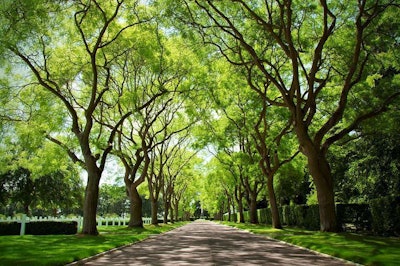
It’s been often repeated that being around trees can reduce one’s stress levels and blood pressure, but the University of Illinois decided to follow up on this belief with additional research.
The study was conducted to determine the dose-response curve between tree cover density and stress recovery.
Dr. Bin Jiang and his team had 158 volunteers participate in mildly stressful situations. The test subjects were asked to prepare a speech and then present it in front of a group of people and then complete a math equation before a panel of judges while being videotaped.
After this, participants used a virtual reality headset to view one of 10 360-degree videos of an urban space with varying amounts of tree canopy visible. The density of tree coverage varied from 2 percent to 62 percent.
The volunteers’ stress levels were measured with a self-reported questionnaire at three different times during the experiment.
Results from the tests showed a positive linear association between the density of trees and the self-reported recovery from stress. That is, the more trees the subjects saw, the faster their stress levels dropped.
“These finding suggest that viewing a tree canopy in communities can aid stress recovery and that every tree matters,” Jiang reported in the study’s abstract.
The researchers found that regardless of age, gender, and baseline stress levels the greater the exposure to trees, the less stress the subject felt.
Volunteers wrote narratives about their experiences, and those recollections revealed an even stronger association of stress recovery.
This research is just one of a number of reports that show how nature can improve one’s mental and physical wellbeing.









